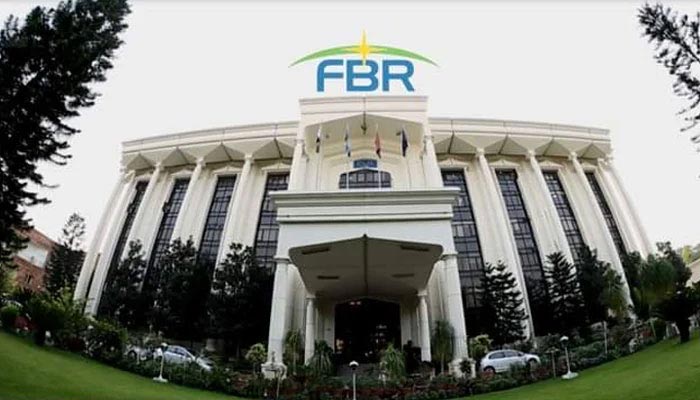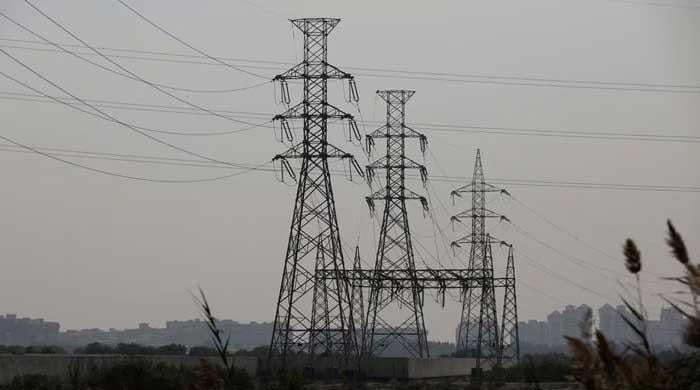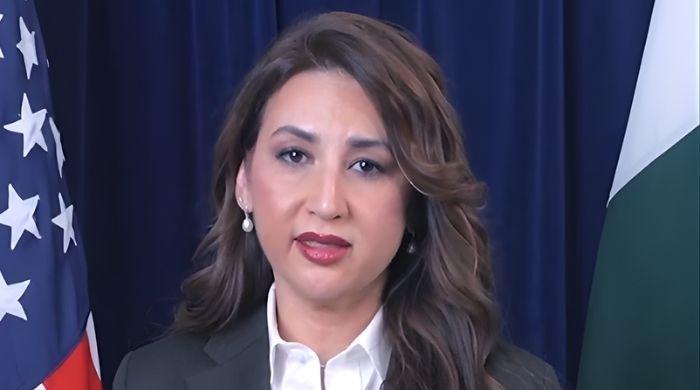FBR rules out mini-budget with hopes for meeting revenue targets despite challenges
FBR member policy acknowledges difficulty of reaching tax target of Rs12.97 trillion for the fiscal year
September 26, 2024

- FBR acknowledges difficulty of reaching tax target of Rs12.97tr.
- Currently, 2.5m of 6m registered taxpayers not contributing tax.
- FBR reveals plan to integrate additional 2m traders into tax net.
ISLAMABAD: The Federal Board of Revenue (FBR) ruled out the mini-budget, asserting confidence in meeting its revenue targets despite the challenges ahead, The News reported Thursday.
Earlier, the tax-collecting authority was poised to introduce a mini-budget with an aim to generate around Rs650 billion in revenue primarily by cracking down on tax evaders and increasing general sales tax (GST) on properties, tractors and other items.
During a meeting of Senate Standing Committee on Finance and Revenue, chaired by Senator Saleem Mandviwalla, FBR Member Policy Hamid Ateeq Sarwar acknowledged the difficulty of reaching the tax target of Rs12.97 trillion for the fiscal year.
Sarwar noted significant hurdles, including challenges in conducting audits and recruiting new staff. Currently, 2.5 million of the 6 million registered taxpayers are not contributing any tax. Additionally, he stated that the government will not extend the deadline for tax return filings.
In response to these challenges, Sarwar announced plans to hire 4,000 auditors and integrate an additional 2 million traders into the tax net. He emphasised that “there are no new tax measures under consideration.” The FBR is also focused on bringing wholesale markets into the tax system, despite ongoing difficulties in this area.
Discussions needed to assess Islamic banking
Earlier, the parliamentary received a briefing from the State Bank of Pakistan (SBP) Governor Jameel Ahmad on the Islamic banking system, explaining that it is regulated by the Shariah Advisory Committee and the Shariah Compliance Department under the Shariah Governance Framework (SGF).
After examining the mechanisms of Islamic banking, committee members concluded that further discussions are needed to assess its regulation according to Islamic principles. The chairman requested a comparative report on SBP regulations for both Islamic and conventional banking. He expressed concern over the omission of HIBA from the musharakah contract and suggested that banks yielding higher returns through Islamic banking might promote it more.
The committee urged the SBP to address this issue. When the governor described it as a specific issue, Senator Anusha Rehman countered, stating it was not just specific but rather a fundamental problem.
She questioned on whether losses in Islamic banking are passed on to clients. An SBP official responded that if an Islamic bank incurs a loss, it typically reduces its profit margin to protect consumers, citing competitive pressures.
Senator Mandviwalla highlighted a common complaint that Islamic banks offer 4% less profit compared to conventional banks. The SBP confirmed this disparity, noting that in July 2024, the return on deposits in Islamic banks was 14.1%, while conventional banks offered 18.8%.
Senator Mohsin Aziz remarked that Islamic banks’ balance sheets appear “greener” than those of conventional banks, suggesting they offer lower returns. In response, the governor noted that Islamic banks generally have fewer investment avenues.
The committee noted that if the Islamic banking system were implemented in its true spirit, it could alleviate inflation and encourage widespread adoption among Pakistanis.
Mandviwalla called for stricter regulations for Islamic banks, similar to those governing conventional banks, to ensure fairness in the banking sector. He emphasised, “The government has made life easy for banks; they don’t even need to pay attention,” while stressing the need for banks to diversify their loan portfolios.
Lack of loan allocation for industrial ventures in KP, Balochistan
Senator Mohsin Aziz raised concerns about the lack of loan allocation for industrial ventures in Balochistan and Khyber Pakhtunkhwa, stating, “All the banks are owned by wealthy individuals, and they are not investing in these provinces.” He highlighted that loan allocations in Khyber Pakhtunkhwa stood at only 0.98%, with Balochistan even lower at 0.35%.
The SBP governor acknowledged the issue but indicated that heavy government borrowing limits banks’ willingness to pursue other lending opportunities.
The committee also discussed the Exim Bank, established in January with Rs230 billion allocated under the Export Finance Scheme, which still lacks a CEO. Mandviwalla questioned the removal of the former CEO, who had served for four years and received a substantial salary despite being deemed “not clear” in an intelligence report.
Anusha Rehman demanded transparency regarding the criteria for appointments and the rationale behind the former CEO’s removal. She stressed the importance of transparency, stating, “Tell us the reasons behind this situation,” and proposed summoning the former CEO to provide direct explanations to the committee.
The committee unanimously approved the government bill titled “The Banking Companies (Amendment) Bill, 2024,” with proposed amendments. Additionally, a private member’s bill, “The State Bank of Pakistan (Amendment) Bill, 2024,” introduced by Senator Mohsin Aziz, was passed by a majority, with Senator Anusha Rehman abstaining from the vote. Concerns were raised about negligible lending practices in smaller provinces, particularly Balochistan and KP, which have hindered industrialisation.
The additional finance secretary addressed amendments to sections 14B and 14C of the Members of Parliament (Salaries and Allowances) Act, 1974, through the Finance Act, 2024, emphasizing parliament’s prerogative in adopting these changes. The committee directed the Ministry of Finance to respond within three days.
Growing demand for autonomy
The chairman of the committee addressed the growing demand for autonomy regarding parliamentary members’ salaries and allowances. The committee has sought to follow the National Assembly’s lead in granting discretion over these financial matters.
“When the amendments of the National Assembly have been approved, Senate should also be given discretion,” Mandviwalla stated. Finance Secretary Imdadullah Bosal confirmed that the Ministry of Finance would review the proposal and update the Senate Secretariat.
After the meeting, the SBP governor told media persons that inflation is expected to remain around 11.5% while GDP growth is likely to range between 2.5% and 3.5%. Speaking to the media on Wednesday, Ahmad noted that Pakistan’s current account deficit is projected to be around 1% of GDP.
Originally published in The News









